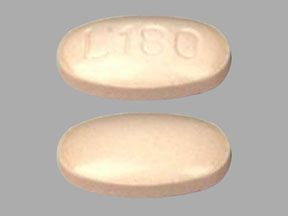
Irbesartan-hydrochlorothiazide Coupons & Savings Card – Discount Prices from $7.85
Generic for: Avalide
My prescription
Edit
150-12.5MG, Irbesartan-hydrochlorothiazide (30 Tablets)
Select pharmacy

CVS
$20.05
COUPON PRICE
Walmart
$7.85
COUPON PRICE
Walgreens
$13.47
COUPON PRICE
Albertsons
$17.59
COUPON PRICEIrbesartan-hydrochlorothiazide savings card
Show this card to your pharmacist
Walmart
$7.85
BIN
ID
PCN
GRP
019876
LHAB2B1A4A
CHIPPO
LHX
Powered by
More prescriptions for hypertension
More prescriptions for hypertension
Irbesartan-hydrochlorothiazide dosage forms
Dosage Quantity Price from Per unit 150-12.5MG 30 Tablets $7.85 $0.26 150-12.5MG 45 Tablets $10.53 $0.23 150-12.5MG 60 Tablets $13.21 $0.22 150-12.5MG 90 Tablets $25.06 $0.28 150-12.5MG 180 Tablets $36.81 $0.20 300-12.5MG 7 Tablets $4.11 $0.59 300-12.5MG 30 Tablets $9.40 $0.31 300-12.5MG 60 Tablets $16.31 $0.27 300-12.5MG 90 Tablets $29.71 $0.33 300-12.5MG 180 Tablets $42.68 $0.24
| Dosage | Quantity | Price from | Per unit |
|---|---|---|---|
| 150-12.5MG | 30 Tablets | $7.85 | $0.26 |
| 150-12.5MG | 45 Tablets | $10.53 | $0.23 |
| 150-12.5MG | 60 Tablets | $13.21 | $0.22 |
| 150-12.5MG | 90 Tablets | $25.06 | $0.28 |
| 150-12.5MG | 180 Tablets | $36.81 | $0.20 |
| 300-12.5MG | 7 Tablets | $4.11 | $0.59 |
| 300-12.5MG | 30 Tablets | $9.40 | $0.31 |
| 300-12.5MG | 60 Tablets | $16.31 | $0.27 |
| 300-12.5MG | 90 Tablets | $29.71 | $0.33 |
| 300-12.5MG | 180 Tablets | $42.68 | $0.24 |
Irbesartan-hydrochlorothiazide Warnings
This medication requires careful consideration due to several important safety warnings and potential risks. It is crucial to consult your healthcare provider for personalized advice and to discuss any concerns you may have regarding its use.
Pregnancy Risks: This medication must not be used during pregnancy as it can cause severe harm to an unborn baby. It is essential to prevent pregnancy while on this medication. If you become pregnant, stop taking it immediately and inform your healthcare provider to explore safer alternatives for managing your condition.
Low Blood Pressure: Some individuals may experience a significant drop in blood pressure, leading to dizziness, fatigue, or lightheadedness, particularly when beginning treatment or increasing the dosage. Staying hydrated is important. If you experience symptoms of low blood pressure, such as dizziness, sit down slowly and contact your healthcare team. Seek immediate medical attention if you fall and sustain a head injury. Risk factors include dehydration, prolonged diarrhea or vomiting, low salt levels, high doses of diuretics, and undergoing dialysis.
Allergic Reactions: Those with a history of asthma or allergies may be at higher risk for allergic reactions. Seek emergency medical assistance if you experience symptoms such as rash, hives, difficulty breathing or swallowing, or swelling of the face, lips, or throat.
Lupus: In rare instances, this medication may exacerbate lupus or cause new cases. Inform your healthcare provider if you notice a rash across your cheeks and nose or experience extreme fatigue.
Electrolyte, Blood Sugar, and Cholesterol Changes: The medication can alter levels of electrolytes like sodium, potassium, and magnesium. Regular blood tests may be necessary. Report any symptoms such as rapid heartbeat, weakness, fatigue, muscle pain or cramps, reduced urination, nausea, or vomiting to your healthcare team.
Kidney Function: There is a risk of kidney impairment, especially in individuals with severe congestive heart failure or existing kidney issues. Regular lab tests may be required to monitor kidney health. Report any urination difficulties to your healthcare provider.
Vision Changes: Rarely, vision changes may occur due to the medication, sometimes necessitating surgery to prevent permanent damage. Report any vision changes or eye pain immediately and discontinue use as advised.
Contraindications: This medication should not be used if you have diabetes and are taking aliskiren, are unable to produce urine, or have allergies to sulfa medications or ARBs.
Always consult your healthcare provider if you have any of these conditions or experience any unusual symptoms while taking this medication.
Irbesartan-hydrochlorothiazide Side Effects
Common side effects:
- Dizziness
- Tiredness
- Muscle pain
- Upset stomach
Less common but important to monitor:
- Flu-like symptoms
- Swelling
- Nausea
- Vomiting
- Chest pain
- Fast heart rate
Serious side effects:
- Severe allergic reactions (trouble breathing, rash, swelling of the face, limbs, or throat)
- Dangerously low blood pressure (dizziness, lightheadedness, pale skin, fainting)
- Serious kidney problems (reduced urination, swelling of extremities, unexplained weight gain)
- Liver issues (yellowing of the skin or eyes, stomach pain, nausea, confusion)
Irbesartan-hydrochlorothiazide Interactions
Interactions with high risk of serious adverse effects and should be avoided:
Interactions with moderate risk that may require dose adjustment, closer monitoring, or timing changes:
- Lithium
- Benazepril
- Lisinopril
- Ibuprofen
- Naproxen
- Birth control pills containing drospirenone
